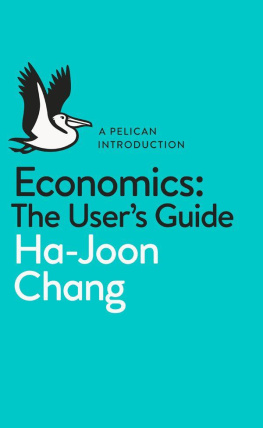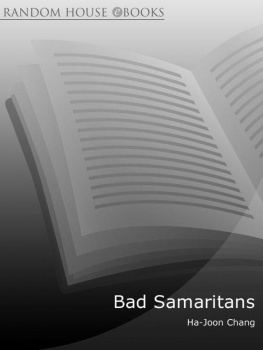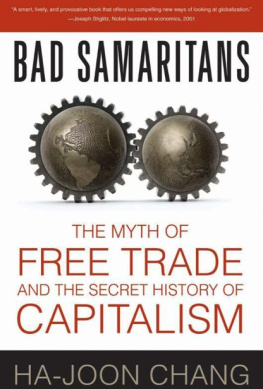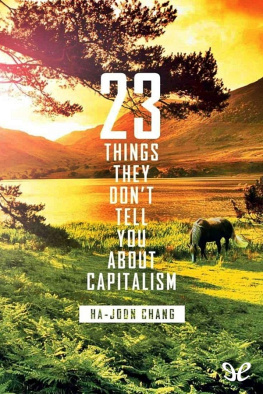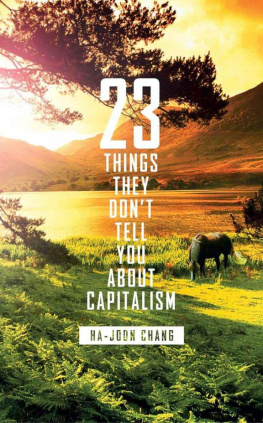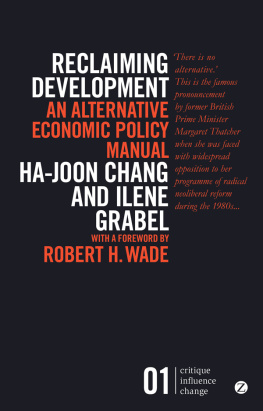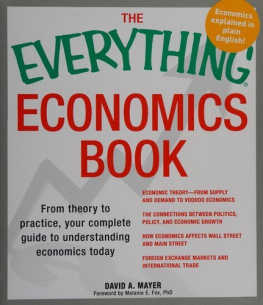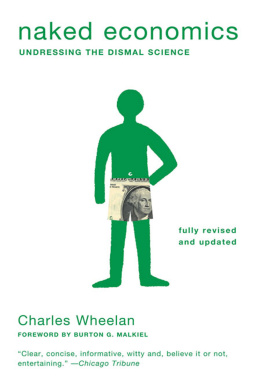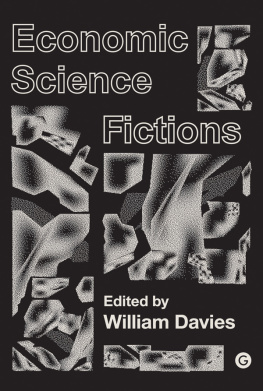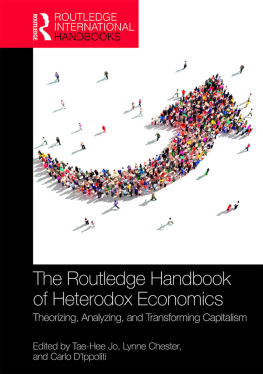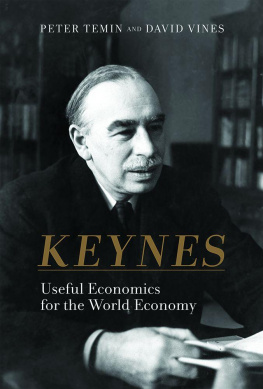Why Are People Not Very Interested in Economics?
Since you have picked up this book, you probably have at least a passing interest in economics. Even so, you may be reading this with some trepidation. Economics is supposed to be difficult perhaps not physics-difficult but demanding enough. Some of you may remember hearing an economist on the radio making an argument that sounded questionable but accepting it because, after all, he is the expert, and you havent even read a proper book on economics.
But is economics really that difficult? It doesnt need to be if it is explained in plain terms. In my previous book, 23Things They Dont Tell You about Capitalism, I even stuck my neck out and said that 95 per cent of economics is common sense made to look difficult, with the use of jargons and mathematics.
Economics is not alone in appearing to be more difficult to outsiders than it really is. In any profession that involves some technical competence be it economics, plumbing or medicine jargons that facilitate communication within the profession make its communication with outsiders more difficult. A little more cynically, all technical professions have an incentive to make themselves look more complicated than they really are so that they can justify the high fees their members charge for their services.
Even considering all this, economics has been uniquely successful in making the general public reluctant to engage with its territory. People express strong opinions on all sorts of things despite not having the appropriate expertise: climate change, gay marriage, the Iraq War, nuclear power stations. But when it comes to economic issues, many people are not even interested, not to speak of not having a strong opinion about them. When was the last time you had a debate on the future of the Euro, inequality in China or the future of the American manufacturing industry? These issues can have a huge impact on your life, wherever you live, by affecting, positively or negatively, your job prospects, your wage and eventually your pension, but you probably havent thought about them seriously.
This curious state of affairs is only partly explained by the fact that economic issues lack the visceral appeals that things like love, dislocation, death and war have. It exists mainly because, especially in the last few decades, people have been led to believe that, like physics or chemistry, economics is a science, in which there is only one correct answer to everything; thus non-experts should simply accept the professional consensus and stop thinking about it. Gregory Mankiw, the Harvard economics professor and the author of one of the most popular economics textbooks, says: Economists like to strike the pose of a scientist. I know, because I often do it myself. When I teach undergraduates, I very consciously describe the field of economics as a science, so no student would start the course
As it will become clearer throughout the book, however, economics can never be a science in the sense that physics or chemistry is. There are many different types of economic theory, each emphasizing different aspects of complex reality, making different moral and political value judgements and drawing different conclusions. Moreover, economic theories constantly fail to predict real-world developments even in areas on which they focus, not least because human beings have their own free will, unlike chemical molecules or physical objects.
If there is no one right answer in economics, then we cannot leave it to the experts alone. This means that every responsible citizen needs to learn some economics. By this I dont mean picking up a thick textbook and absorbing one particular economic point of view. What is needed is to learn economics in such a way that one becomes aware of different types of economic arguments and develops the critical faculty to judge which argument makes most sense in a given economic circumstance and in light of which moral values and political goals (note that I am not saying which argument is correct). This requires a book that discusses economics in a way that has not been tried, which I believe this book does.
How Is This Book Different?
How is this book different from other introductory books to economics?
In short, I try to explain to my reader how to think, rather than what to think.
Engaging the reader at the deepest level of analysis, however, does not mean that the book is going to be difficult. There is nothing in this book that the reader cannot understand, as far as he or she has had a secondary education. All I ask of my readers is the curiosity to find out what is really going on and the patience to read through a few paragraphs at the same time.
Another critical difference with other economics books is that my book contains a lot of information on the real world. And when I say world, I mean it. This book provides information on many different countries. This is not to say that all countries get equal attention. But, unlike most other books in economics, the information will not be confined to one or two countries or to one type of country (say, rich countries or poor countries). Much of the information provided will be numbers: how large the world economy is, how much of it is produced by the US or Brazil, what proportions of their outputs China or the Democratic Republic of Congo invest, how long people work in Greece or Germany. But this will be complemented by qualitative information on institutional arrangements, historical backgrounds, typical policy and the like. The hope is that at the end of this book the reader can say that he or she has some feel about the way in which the economy actually works in the real world.
And now for something completely different
I realize that not all readers are ready to spend a lot of time on this book, at least to begin with. Therefore, I suggest several different ways of reading this book, depending on how much time you think you can afford.

